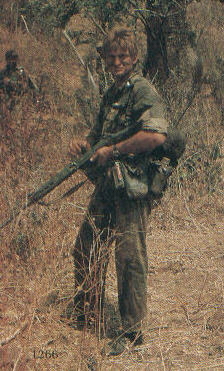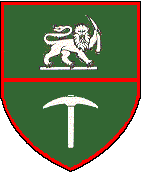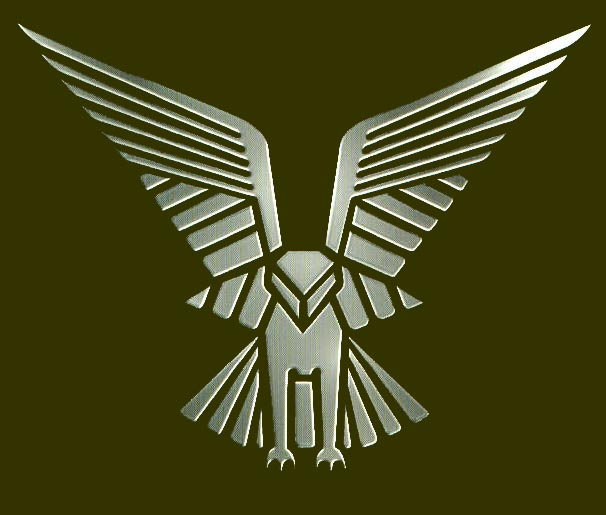|
Men
fighting a counterinsurgency war need to be very special, for not only do they
have to stalk an elusive enemy, often operating in difficult terrain, but they
also have to be self-reliant in the field. They have to be fit, resourceful and
capable of working under conditions that push them beyond the limits of normal
endurance.
The Selous Scouts
- small Units
disguised as the enemy were used
by the British in Malaya and Kenya in the 1950s — but the Scouts, in their brief history, became one of the finest
exponents
of
the art.
 Their
success reflected the quality and quantity of their training. All undercover
units undergo strenuous testing but, to many observers who were unfamiliar with
the harshness of the Rhodesian bush, it seemed that the Scouts were subjected to
almost barbaric trials of strength and stomach. Excessive or not, their training
paid dividends in the field.
Their
success reflected the quality and quantity of their training. All undercover
units undergo strenuous testing but, to many observers who were unfamiliar with
the harshness of the Rhodesian bush, it seemed that the Scouts were subjected to
almost barbaric trials of strength and stomach. Excessive or not, their training
paid dividends in the field.
Inevitably,
because of the
tight
security that
surrounded
the Scouts’ operations, members of the
regular
forces, already resentful of their ‘special’ treatment and casual dress,
began
to question their worth. Things came to a head in the late 1970s with the Scouts
being accused of gun-running and poaching. For a time the regiment weathered the
storm but, with the resignation of their commander in 1979, it was clear that
the end was in
sight.
In March 1980, following the take-over by African nationalists, the
Selous
Scouts were
disbanded
and the unit’s short career came to an
inglorious
end.
-Peter Stiff
|




